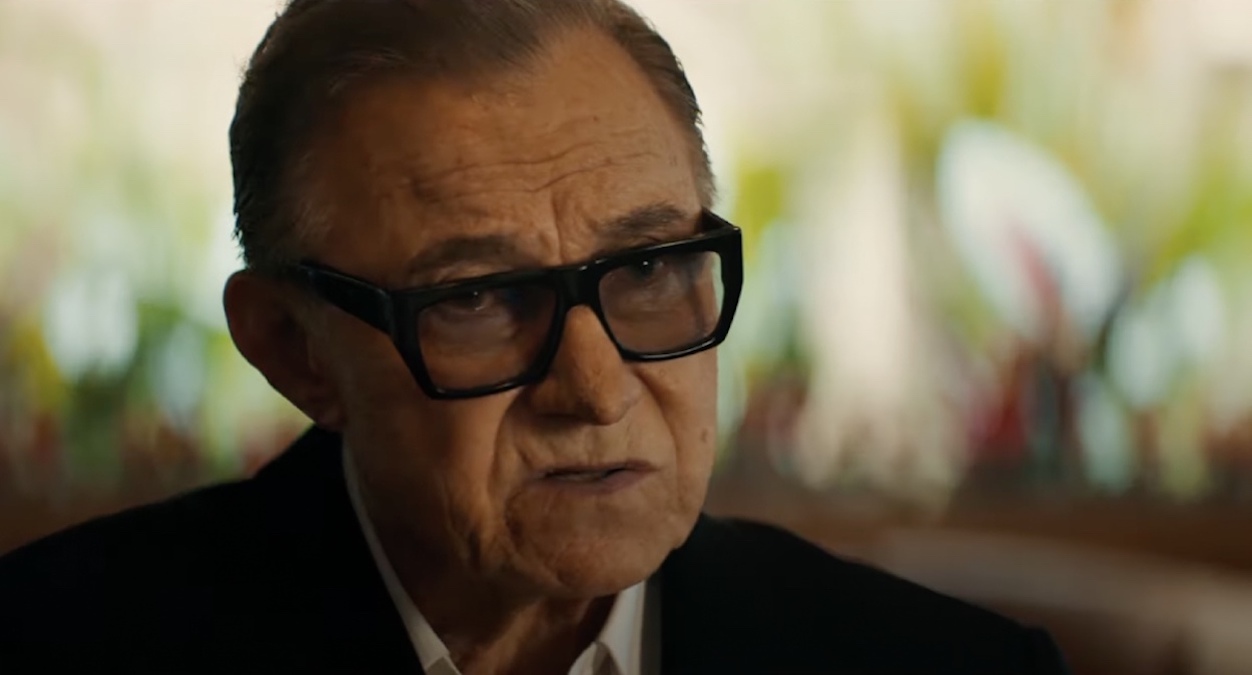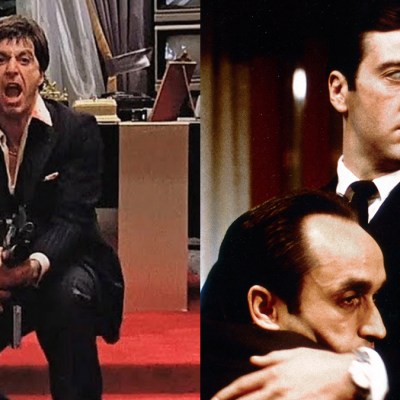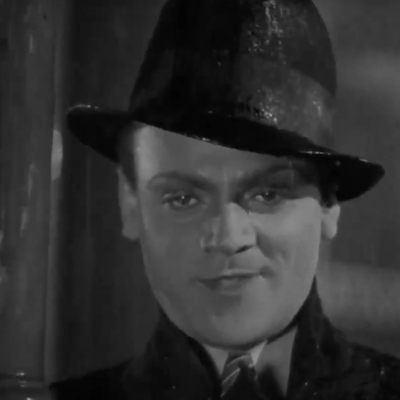“My reputation has a habit of preceding me,” Harvey Keitel’s Meyer Lansky explains toward the beginning of Lansky. “When they don’t know you, they put labels on you.” Writer-director Eytan Rockaway’s biographical crime feature is a no-frills, selective retelling of a notorious figure, which works because it puts a recognizable face to that label.
Nicknamed the “Mob’s Accountant,” Meyer Lansky knew his numbers, and Rockaway’s film only suffers when it hedges its bets. It begins with a grand promise to portray Lansky as he would have liked to have been portrayed in history. The recollections and the stories work very well when they stick to the gangster of the title. The low-budget, independent feel brings an immediacy, and more rebel street cred than the risk-taking former crime beat journalist at the center.
Sam Worthington is a little too nervous too much of the time as David Stone, the author who is conducting the interviews. He is holding something back from the moment he meets Lansky, and we have to wonder why Meyer would agree to spill his guts to such an obvious wild card. It is more confounding why Lansky would forgive the guy for going behind his back, just because he “likes” him.
Stone is loosely based on the real-life story of the director’s father and the interviews he conducted before Lanksy died. The man who interviewed Lansky had to have been more likeable than the fictitious Stone. The writer here judges Lansky as he tells even the most personal stories. There is an incriminating tone to too many of the follow-up questions. He’s like an American Piers Morgan, almost always looking for a fight. “Does that help you sleep at night?” he taunts his subject after hearing the details of an execution. Lansky says at the beginning he wants to control how history paints him. He wouldn’t have allowed this line of questioning to go that far. He would have smelled a rat.
Some of Stone’s backstory could have been clipped in favor of more recreations. This is Lansky’s story, and we’d love to hear more of it. Or see it. We get a glimpse of young Meyer, the child on the street learning to lay line bets at crap games. But we only hear the famous story of how “the wandering Jew” stood up to Lucky Luciano’s (Shane McRae) gang of teen toughs when they “politely asked him to empty his pockets.”
Most of the film is functional exposition. It is not particularly artful, but it gets the story across. A few shots are as well-framed as Miller’s Crossing, but some of the historic recreations have the feel of the crime scene reenactments found in true crime television specials. Except for the gore.
There are some wonderfully queasy bits thrown in, like a simple thumb in the eye during the routing of the Nazi Bund from New York. Viewers might even be tempted to avert their eyes from a few of the visuals. Again, they are not artistically rendered, they are strictly functional, and not gratuitous. There is no overkill. Nothing is done for specific shock value.
John Magaro, who plays young Meyer Lansky, will be playing young Silvio Dante in the upcoming The Sopranos prequel, The Many Saints of Newark. He brings humor into the part, obviously relishing his scenes with David Cade as Ben Siegel. The pair bring the feel of an easy camaraderie.
“Look at me when you fucking die, you double-crossing sack of shit,” Siegel spits as he stabs the boss of all bosses on Lansky’s order to “make him feel it.” It’s become one of my favorite gangster movie lines of all time. It could easily slide out of the side of Joe Pesci’s mouth as Tommy in Goodfellas. Not all the dialogue is up to that level of gangster homage, but this also works to the film’s credit.
Young Meyer’s romantic scenes with Anne, played by AnnaSophia Robb, are also quite effective. Robb’s reading of the line “so, truck rentals?” is filled with bemused mirth and flirtation. But their more contentious and violent scenes together, as the marriage goes through several downward spirals, are not as convincing. The acting is solid throughout, but we never really believe Magaro could actually bring himself to hit her. Lacking the visceral malice, the actor is, perhaps, too nice a person. Again, this works in spite of itself, as it makes Anne’s electroshock therapy scene that much more intense.
The real reason to watch this is Keitel and witness him do what he does best, become a character. Keitel, who enlisted in the marines at the age of 16, has played in the same mean streets as Lansky since he first hit cinema. He may or may not be acting in any of the scenes, nor does he have to in order to capture the essence of Meyer Lansky. Every memory he recalls can be his own, he can react from a memory of life or his life in the cinema.
In the gangster movie world, Keitel is Lansky. As much as Al Pacino could lay claim to being a Lucky Luciano of film, or Robert De Niro can call a Genovese title to himself. They didn’t play those characters, specifically, but they fill the same roles in the gangster movie hierarchy. They overthrew the old guard, the Bogarts, Cagneys, and George Rafts, who walked the same streets or drank in the same speakeasies.
Keitel is relaxed, tanned, and comfortable in Lansky’s skin. When he threatens Stone at the onset of their arrangement, his amiable glint disappears, but only for one moment of laser focus. Then he gives a foreshadowing of the clemency he will grant. To the director, this is just a passing tone to give depth to a change in scene, but Keitel throws almost imperceptible curveballs.
Read more
“The only winners in life are those that control the game,” Lansky declares at the top of the film, and Keitel owns this movie without having to get up from his seat at the diner. Stone is right when he pegs Lansky as a complicated man and says his book isn’t “about one man, it’s about the 20th century.”
Lansky makes a good case for the claim, and could have carried it out, even on the tight production. Maybe especially because of it, some of the best mob movies were low budget affairs. It comes up short, but gangster fans should not miss it. The performances are enthusiastic and the history is there.
Lansky hits select theaters and will be available On Demand on June 25.


